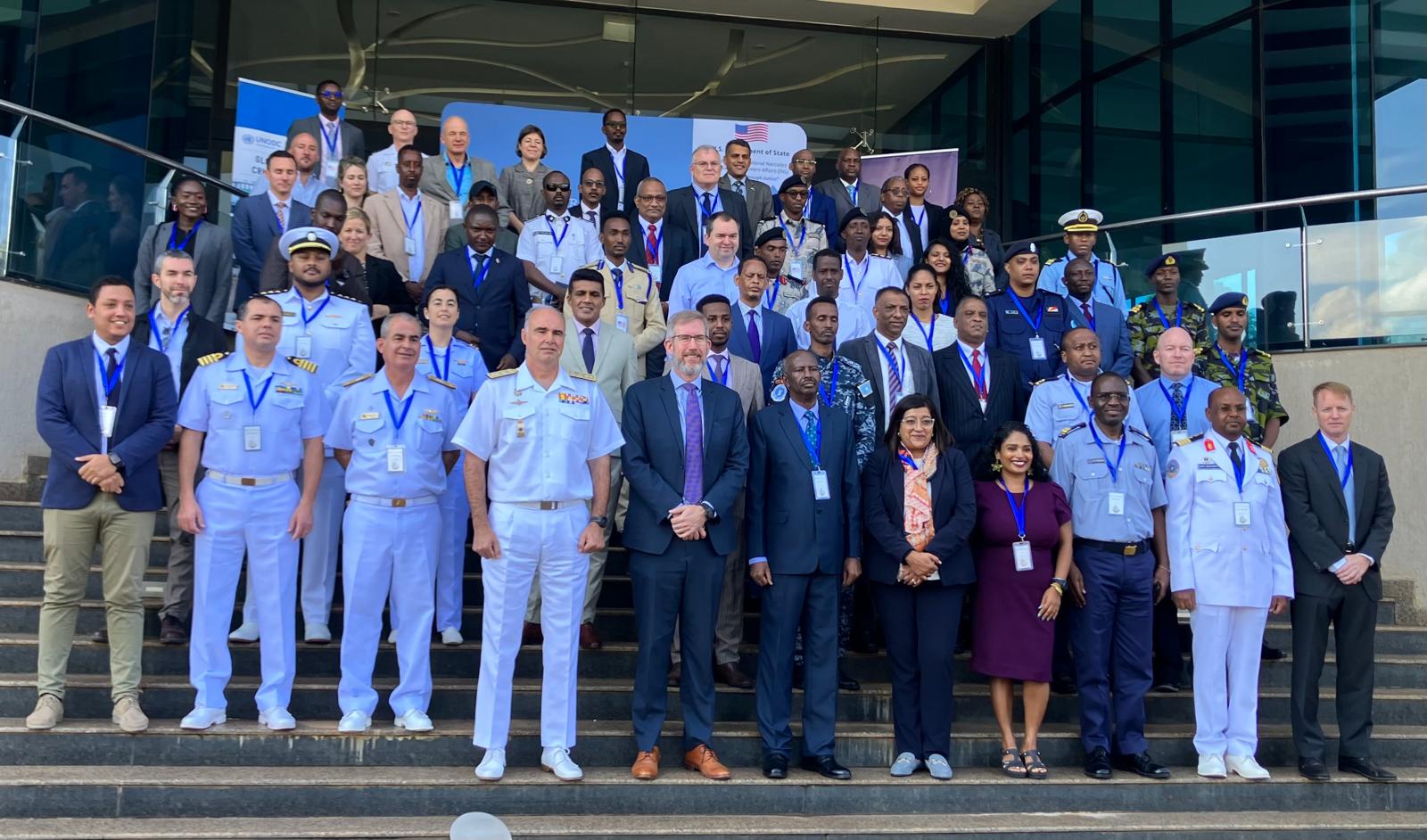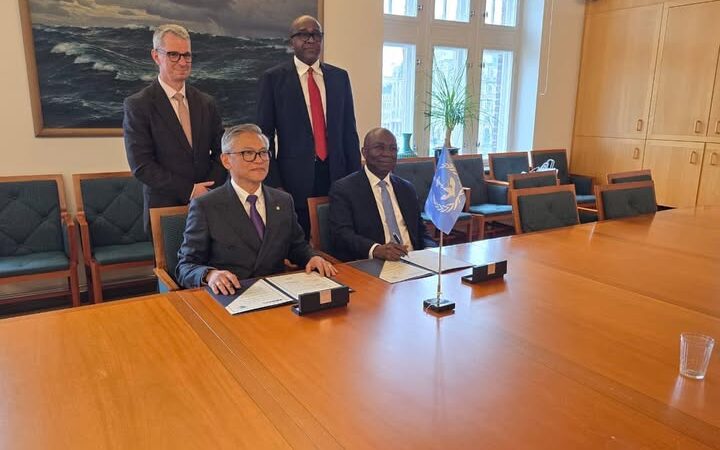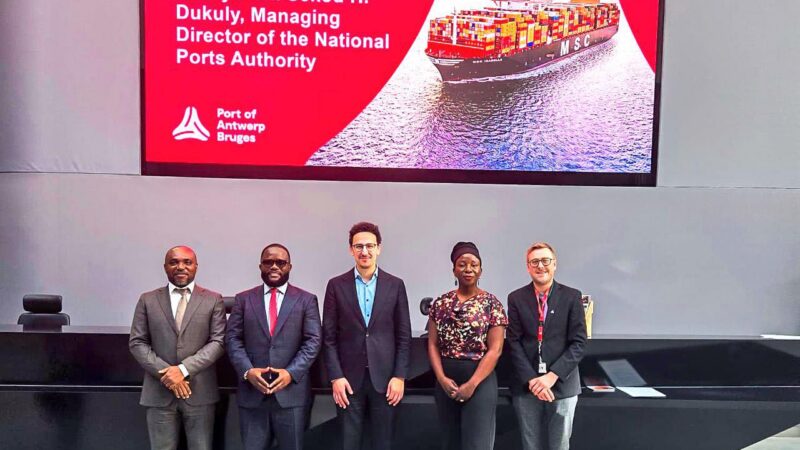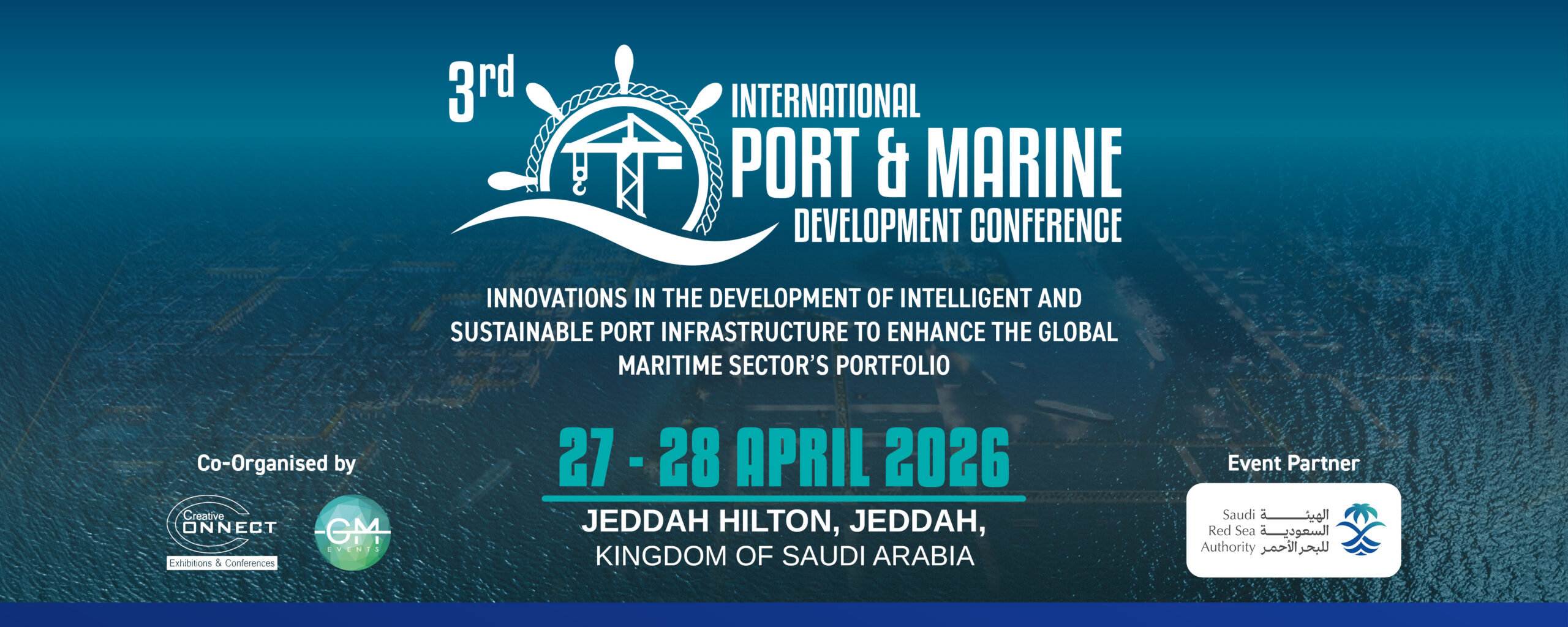Piracy Impact Workshop
In response to a concerning resurgence of piracy cases in the Indian Ocean and the Gulf of Aden starting in November 2023, the United Nations Office on Drugs and Crime Global Maritime Crime Programme (UNODC GMCP), in its capacity as the Chair of the Maritime Law Enforcement and Prosecution Working Group of the Contact Group on Illicit Maritime Activities and supporting the Djibouti Code of Conduct/Jeddah Amendment (DCOC/JA), convened a three-day Piracy Impact Workshop. This event, initiated and funded by the U.S. Department of State’s Bureau of International Narcotics and Law Enforcement Affairs and supported by the United Nations Office for Project Services, was a crucial step in addressing the alarming increase in piracy, demonstrating the collective commitment of regional and international stakeholders.
Delegates from the law enforcement and prosecution authorities of Djibouti, Kenya, Mauritius, Seychelles and Somalia, along with international partners, including the European Union Naval Force (EUNAVFOR) Operation Atalanta, Combined Maritime Forces Headquarters and Combined Task Force 151, the Indian Navy, the UK Maritime Trade Office, the US Federal Bureau of Investigation (FBI) and other international partners. The goal was to enhance detailed collaboration between law enforcement and prosecution to counter this ongoing and evolving threat.
Over the three days, the participants tackled the multifaceted challenges of combating maritime piracy, sharing insights and experiences highlighting their successes and the persistent hurdles. The workshop covered a comprehensive range of topics essential to the fight against piracy, including the latest trends in pirate activity, innovative prosecution techniques, and enhanced cooperation mechanisms among the participating countries. The inclusion of international expertise from entities provided a broader perspective on tackling the complexities of maritime crime, ensuring that global best practices bolstered local efforts.
A highlight of the workshop was the FBI’s compelling presentation detailing a landmark piracy case that took a decade to prosecute. This case study provided invaluable insights into the complexities of legal proceedings in piracy cases, emphasizing the importance of meticulous investigation and international cooperation. The FBI’s experience underscored the persistent and long-term efforts required to bring maritime criminals to justice.
Additionally, the UNODC GMCP facilitated a discussion with a former pirate who successfully went through the UNODC’s reintegration and rehabilitation programme in Somalia. This session offered a rare and humanizing perspective on the piracy issue, illustrating the transformative impact of rehabilitation efforts. The ex-pirate’s story of redemption and reintegration highlighted the potential for turning lives around, contributing to the broader goal of reducing piracy through comprehensive rehabilitation programs.
One of the key outcomes of the workshop was the reinforced commitment to inter-agency and international collaboration. The representatives engaged in candid discussions about their specific challenges, from legal frameworks to operational hurdles in apprehending and prosecuting pirates. The workshop also facilitated a deeper understanding of the need for a unified approach to maritime security. The dialogue underscored the importance of cohesive strategies and shared resources, which are critical in sustaining the fight against piracy.
As a result of this workshop, a comprehensive tactical-level task force to target Horn of Africa piracy has been proposed, incorporating resources from international naval operations along with state and federal-level law enforcement, criminal investigators and prosecutors from Somalia, its coastal neighbours and regional countries with existing frameworks for the exercise of universal jurisdiction on piracy cases. This proposed task force is intended operationalize national commitments previously declared in the DCOC/JA and integrate resources from the broader CGIMA community to provide both structure and flexibility in the response and mechanisms to ensure both appropriate task force-wide information sharing and also case-based compartmentalization and focus. If successful, this could serve as a useful model for operationalization of the existing regional structures to focus on other specific maritime crime issues, turning the current piracy challenge into an opportunity to further build the foundation of Indian Ocean maritime governance that will be essential to the future of the region.
Source : UNODC






